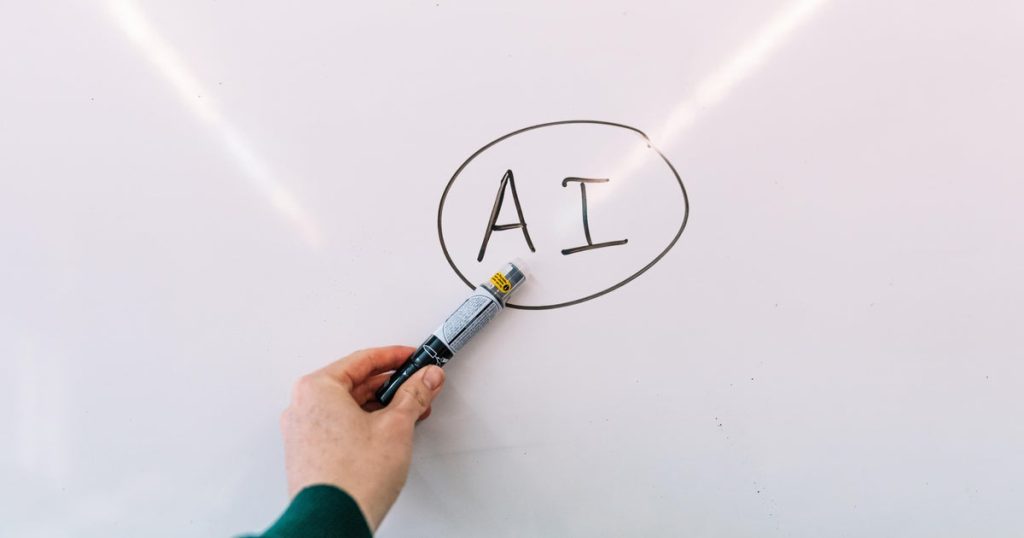In a significant move to integrate artificial intelligence (AI) into the education sector, leading tech companies are joining forces with teachers’ unions to enhance classroom experiences across the United States. The American Federation of Teachers (AFT) recently announced the establishment of the National Academy for AI Instruction, an ambitious $23 million initiative supported by tech giants including Anthropic, Microsoft, and OpenAI. The academy will serve as a training facility aimed at educating teachers on how to ethically utilize AI technologies in their teaching methods, beginning this fall.
| Article Subheadings |
|---|
| 1) Overview of the National Academy for AI Instruction |
| 2) Funding and Support from Tech Giants |
| 3) Goals and Objectives of the Academy |
| 4) Course Offerings and Structure |
| 5) Broader Implications for Education |
Overview of the National Academy for AI Instruction
The National Academy for AI Instruction represents a pioneering effort to incorporate artificial intelligence into educational settings. Launched by the AFT, the academy aims to empower educators with the knowledge to utilize AI tools effectively in their classrooms. This initiative comes as AI technologies are becoming increasingly prevalent and influential, promising to enhance teaching and learning experiences. AFT President Randi Weingarten underscored the importance of human interaction in learning, stating,
“The direct connection between a teacher and their kids can never be replaced by new technologies…”
. The academy intends to strike a balance between leveraging AI’s potential and maintaining the essential human element in education.
Funding and Support from Tech Giants
The funding for this transformative initiative is spearheaded by three tech companies: OpenAI, Microsoft, and Anthropic. OpenAI is set to contribute $10 million over five years, while Microsoft has pledged a more substantial investment of $12.5 million. Anthropic, on the other hand, is committing $500,000 in its first year. This financial support is crucial as it will allow the academy to establish itself and develop resources necessary for effective teacher training. This collaboration between the tech industry and education sectors marks a significant step toward a future where AI can assist educators in fostering learning environments that are both innovative and supportive.
Goals and Objectives of the Academy
The primary goal of the National Academy for AI Instruction is to train approximately 400,000 educators—representing about 10% of the U.S. teaching workforce—over the next five years. AFT plans to kick off its training programs at the United Federation of Teachers’ facility located in Manhattan, New York, with additional hubs being developed across the country, slated to open by 2030. This aggressive outreach aims to ensure that all 1.8 million members of the AFT have access to free virtual training focused on K-12 educators. The overarching vision is to equip teachers with the skills required to master AI tools, thereby enhancing their teaching methodologies and the educational experiences of their students.
Course Offerings and Structure
The academy will offer a diverse range of programming, specifically designed by AI experts and education professionals. Educators can expect workshops, online courses, and hands-on training sessions to help them understand the practical applications of AI in classrooms. This approach is aimed at making learning both accessible and applicable, enabling teachers to implement AI solutions effectively. The structure of the courses is designed to foster mastery over AI tools, allowing teachers to feel confident in their ability to integrate these technologies into their lesson plans and classroom activities.
Broader Implications for Education
The introduction of AI into education holds transformative potential. By providing educators with the tools and training to employ AI, the AFT aims to prepare teachers for a modern classroom environment where technology plays a crucial role. This initiative could pave the way for a more personalized learning experience, enabling educators to better address the diverse needs of their students. As AI continues to evolve, its integration into educational systems could not only enhance teaching practices but potentially alter how learning is perceived on a broader scale, leading to more innovative and effective educational methodologies.
| No. | Key Points |
|---|---|
| 1 | The AFT has launched a $23 million initiative to bring AI training to educators in the U.S. |
| 2 | Tech giants OpenAI, Microsoft, and Anthropic are the primary funders of the initiative. |
| 3 | The academy aims to train a significant portion of the U.S. teaching workforce over the next five years. |
| 4 | Courses will commence in Manhattan, with plans for additional hubs nationwide by 2030. |
| 5 | The initiative seeks to enhance teaching methods while preserving personal interaction in classrooms. |
Summary
In summary, the National Academy for AI Instruction represents a landmark collaboration between education and technology, emphasizing the importance of integrating AI into teaching while maintaining the critical human connection in education. With substantial backing from major tech companies and a clear objective to train a large segment of K-12 educators, this initiative has the potential to reshape the educational landscape by making modern teaching tools accessible and effectively enhancing learning experiences for students across the country.
Frequently Asked Questions
Question: What is the National Academy for AI Instruction?
The National Academy for AI Instruction is a new initiative launched by the AFT, aimed at training educators in the ethical use of artificial intelligence tools in classrooms across the U.S.
Question: How much funding has been allocated for this initiative?
The initiative has received $23 million in funding, with contributions from tech giants including OpenAI, Microsoft, and Anthropic.
Question: What types of training will be offered to educators?
The academy will offer workshops, online courses, and hands-on training sessions designed to equip educators with the skills needed to effectively implement AI in their teaching practices.


